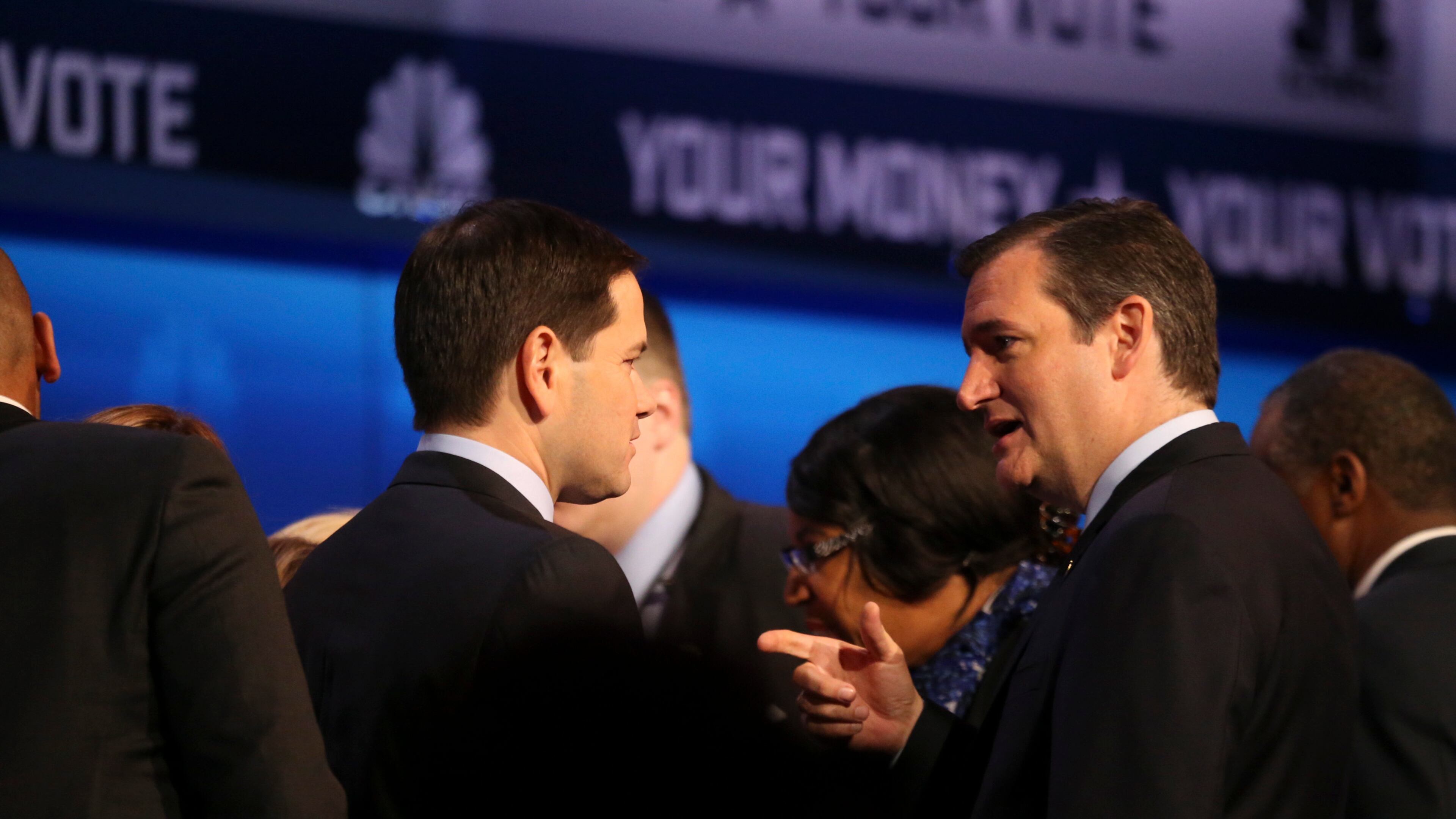What if the big GOP split on immigration isn't much of a split?

Because there was more substance to chew on during Tuesday night's GOP debate , we're starting to see some contrasts drawn among the candidates on major issues. One of the first ones out of the gate is immigration, with Donald Trump and Ted Cruz said to be on the restrictionist side, Jeb Bush and John Kasich said to be on the "amnesty" (whatever that word means) side, and Marco Rubio said to be studiously trying to avoid the subject whenever he can -- and to walk a fine line whenever he can't.
That's not an entirely accurate picture, though, as anyone with a memory of more than a few months ought to know. Under attack from Cruz for his involvement with the ultimately unsuccessful "Gang of Eight" bill, Rubio is trying to refresh folks' memories:
Yes, as recently as two years ago Cruz was in favor of something that he and his supporters might now describe as "amnesty." Here's a New York Times article from September 2013 :
"What has not been as evident is what he supports: legal status for millions of people here already, while making it easier for immigrants to come here through the front door.
"'I have said many times that I want to see common-sense immigration reform pass,' he said. 'I think most Americans want to see the problem fixed.'"
The Times' story goes on to detail the middle ground Cruz tried to identify: "A path to legal status, but not to citizenship. A green card with no right to naturalization." The former differed from the Gang of Eight bill, the latter did not. Or, as Cruz himself put it, according to the story:
"'The amendment that I introduced removed the path to citizenship, but it did not change the underlying work permit from the Gang of Eight,' he said during a recent visit to El Paso. Mr. Cruz also noted that he had not called for deportation or, as Mitt Romney famously advocated, self-deportation."
As Cruz noted then, while that middle ground might not satisfy Democrats, it is probably the closest to what Americans tell opinion pollsters they'd favor. As for legal immigration, Cruz didn't come off as much of a restrictionist then:
"Besides barring citizenship while instituting some level of legalization for those here already, Mr. Cruz has proposed increasing the number of green cards awarded annually, to 1.35 million from 675,000. He also wants to eliminate the per-country limit that he said left applicants from countries like Mexico, China and India hamstrung when they tried to gain legal entry to this country."
Now, candidates of course change their minds from time to time -- Trump has changed seemingly all the positions he held five to 10 years ago -- and maybe Cruz has had a sincere change of heart. But more likely, he is simply relying on the vagueness of such words such as "amnesty," which never seems to be defined. If taking citizenship off the table as part of a deal means there's no amnesty, then Cruz is being consistent.
Would his supporters think so? I think that's the big risk he's taking here. He can't very well stick to his original position on the issue and court a large segment of Trump's supporters without making someone mad in the end. And it seems Rubio, for one, isn't going to let the issue become portrayed as pro-amnesty/immigration Republicans vs. anti-amnesty/immigration Republicans. Again, from his comments just this morning:
So it might be that, besides Trump, the GOP field is really just arguing over branding and terminology, not actual policy. If that's the case, the eventual nominee would be better off if that's clarified sooner than later.
